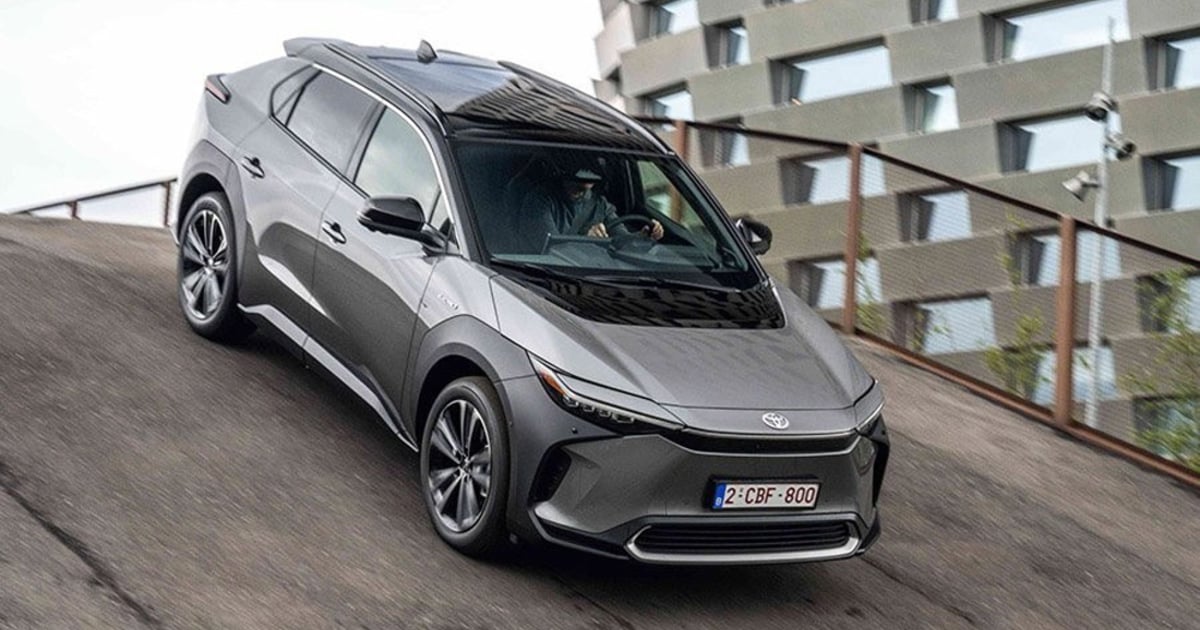
TOKYO, May 2 (Reuters) – Japan’s automakers are facing a sales crisis in China, data shows, as a rapid shift to electric vehicles (EVs) has upended the world’s largest auto market and led to a plunge in purchases of gasoline-powered cars.
Total sales of Japanese auto brands in China were down 32 percent year-on-year in the first quarter, more than double the pace of the overall market contraction, industry data analysed by Reuters showed.
While other automakers like Volkswagen AG have also been caught out by the sharp shift in China, Japanese automakers stand out because of their limited showing in the fast-growing category of electric and plug-in hybrid sales.
Production and margins will come under pressure in China as automakers cut output and prices of gasoline-powered cars to keep inventories in check, analysts say, in a worrying sign of the competition Japanese automakers could increasingly face outside their home market.
“Especially Japanese automakers face a little bit more inventory of new cars,” in China, Yasushi Matsui, chief financial officer at parts supplier Denso Corp., said last week. “They are making adjustments.”
Mitsubishi Motors Corp said last week it had suspended production of its Outlander crossover in China for three months and would take a $77 million charge for slowing sales at its joint venture with state-owned GAC Group.
Mitsubishi, like some other Japanese automakers, does not break out China sales figures. Industry data analysed by Reuters showed its first-quarter sales in China fell 58 percent from a year earlier.
In another shift, Nissan’s Sylphy, a sedan that had been China’s top-selling vehicle for three years, was edged out last year by the BYD Song, a plug-in hybrid made by BYD, China’s top automaker.
In emailed comments, Nissan said it had sold over 5 million Sylphys in China over the years, adding that an electric-drive hybrid version was eligible for incentives in Guangzhou.
The company said it was working with other cities on similar support. The e-Power electric-drive hybrid version of the sedan would be central to Nissan’s brand transformation in China, it said.
Toyota Motor Corp. has said its go-slow approach to all-electric cars protects consumer choice, but the strategy is costing sales in China, analysts say.
“Japan is the biggest loser of the price war so far,” said Bill Russo, founder and CEO of Automobility, a Shanghai-based consultancy.
“As EVs get more affordable, they become more attractive to the core buyers who have been resisting so far, the buyers of foreign brands. So, you can see the writing is on the wall.”
Japan’s share of car sales in China slumped to 18.5 percent in the first quarter, down from 24 percent in 2020, industry data from the China Association of Automobile Manufacturers analysed by Reuters showed.
Toyota and its luxury brand Lexus posted a 14.5 percent drop in first-quarter sales, company data showed.
“We need to increase our speed and efforts to firmly meet the customer expectations in the Chinese market,” Toyota CEO Koji Sato said in an interview last month.
Nissan Motor Co. posted a 45.8 percent drop in China sales and Mazda Motor Corp. sales were down 66.5 percent in the first quarter. Honda Motor Co Ltd had a 38.2 percent drop, industry data showed.
Honda Chief Executive Toshihiro Mibe acknowledged the automaker lagged Chinese rivals in some software technologies.
China’s automakers are “further ahead of us than we expected,” Mibe told reporters at a presentation in Tokyo focused on Honda’s efforts in autonomous driving and services like gaming.
Japanese automakers built their reputation on factors like durability, but the shift in China shows the draw of lower-priced electric cars and new offerings based on software, said Masatoshi Nishimoto, principal research analyst at S&P Global Mobility in Tokyo.
“Japanese automakers could face a similar struggle in the United States as in China,” he said.

